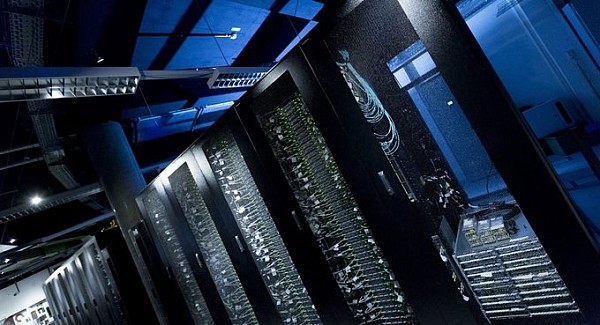Imprensa EU signs off on billions in funding for supercomputer race
EU countries approved Tuesday billions of euros in new funding for supercomputers — a welcome boost for the bloc in a global race for computing power against the U.S. and China.
A recent ranking of the best supercomputers in the world underscored the bloc’s limited access to the powerful machines, and its reliance on American and Chinese manufacturers for the technology.
The EU hosts two of the 10 fastest and most powerful supercomputers in the world. Nearly 70 percent of the best supercomputers in Europe were built by Chinese and American companies.
But Brussels is looking ahead with a European public-private partnership on supercomputers that will bring €3.5 billion in funding over the next 12 years. An extra €4.5 billion will come from companies and participating countries.
“Today’s decision contributes to the EU’s strategic autonomy and delivery of the European Research Area. The goal is clear: to make Europe a world-leading actor in super computing. It will help tackle global challenges and help ensure the EU’s green and digital transitions,” said Simona Kustec, science minister of Slovenia, which holds the rotating Council presidency.
Supercomputers are becoming essential for researchers at universities and inside companies, allowing them for example to predict weather patterns or test new drugs. The next generation of machines could perform up to 1018 calculations per second (reaching “exascale”) and include quantum accelerators, opening whole new ranges of applications.
To become a leader in supercomputers, Europe will need as many machines as possible at its disposal. But the key question remains whether European companies should build the computers themselves or continue to rely on foreign providers.
While French IT company Atos was behind 27 of Europe’s supercomputers, 44 percent of the 93 best supercomputers located in Europe were built by Chinese companies Lenovo and Huawei.
Maria da Graça Carvalho, the lead MEP who negotiated funding for European supercomputers, said Europe has been “neglecting” its manufacturing industry and is now overly relying on other countries for supercomputers and the microprocessors that power them.
“Part of our strategic independence is to be able to manufacture, and to regain this culture of manufacturing that we have lost in the last 10 years, because it was sometimes more economic to import from other parts of the world,” da Graça Carvalho told POLITICO.
Three Chinese companies, Lenovo, Inspur and Sugon, manufactured over half of the world’s top 500 computers in 2021.
In June, the European body set up to boost the continent’s high-performance computing canceled a tender for a €150 million supercomputer in Barcelona amid a political struggle over whether to award the contract to Atos or U.S.-Chinese consortium IBM-Lenovo.
The European Commission aims to buy and install in a few years supercomputers “based on indigenous European technologies,” according to Gustav Kalbe, a senior Commission official leading the work on supercomputers and quantum technology.
But he told a panel that Europeans still need to be open to partnerships with foreign manufacturers to host as many “state of the art” supercomputers as possible in the bloc.
